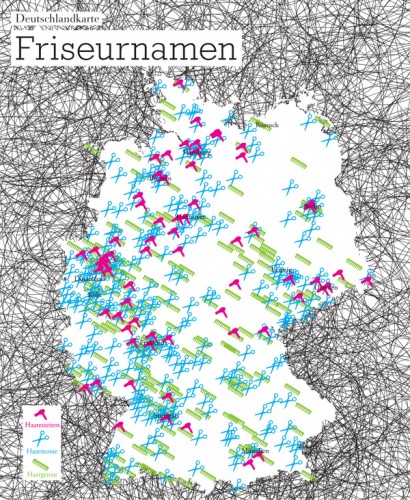 The predeliction of English salons for this kind of linguistic tomfoolery is so great that they made up a good part of a Guy Swillingham's Shop horror: the best of the worst in British shop names. If you can excuse a comment about one map which is made up of 'mere typography' Strange Maps has many other gems, including a description of the Guardian's April 1977 feature on San Seriffe
The predeliction of English salons for this kind of linguistic tomfoolery is so great that they made up a good part of a Guy Swillingham's Shop horror: the best of the worst in British shop names. If you can excuse a comment about one map which is made up of 'mere typography' Strange Maps has many other gems, including a description of the Guardian's April 1977 feature on San SeriffeHair affairs
 The predeliction of English salons for this kind of linguistic tomfoolery is so great that they made up a good part of a Guy Swillingham's Shop horror: the best of the worst in British shop names. If you can excuse a comment about one map which is made up of 'mere typography' Strange Maps has many other gems, including a description of the Guardian's April 1977 feature on San Seriffe
The predeliction of English salons for this kind of linguistic tomfoolery is so great that they made up a good part of a Guy Swillingham's Shop horror: the best of the worst in British shop names. If you can excuse a comment about one map which is made up of 'mere typography' Strange Maps has many other gems, including a description of the Guardian's April 1977 feature on San Seriffe


